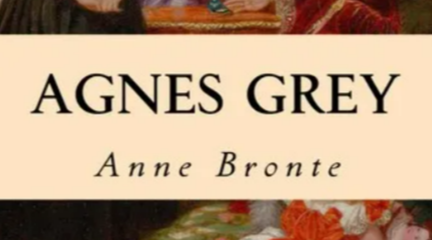Chapter V — The Uncle
byChapter V – The Uncle begins by exposing the deepening troubles Agnes Grey faces while working in the Bloomfield household, especially with young Tom. His unruly behavior, already difficult, becomes worse under the influence of his uncle, Mr. Robson. This man, loud and overbearing, encourages Tom to behave cruelly toward animals, presenting such acts as a form of amusement and masculine sport. Even the father’s casual cruelty is normalized through his constant drinking and harsh demeanor, which are explained away rather than addressed. Agnes observes this toxic environment with growing alarm. Her efforts to guide Tom are persistently undone by adults who model violence and selfishness instead of kindness.
Tom’s fondness for tormenting animals escalates, particularly after his uncle’s visits. A critical moment arises when he captures a nest full of baby birds, announcing plans to starve and tease them for fun. Agnes is horrified. She pleads with him to release the creatures, reminding him of the pain he’s inflicting. But her appeals fall on deaf ears. With no authority to stop him, and unwilling to let the suffering continue, she makes a difficult decision. To spare the birds prolonged agony, she takes a stone and ends their lives herself. It’s a quiet but devastating act, born from compassion and desperation.
The fallout is immediate. Tom explodes with anger and runs to Mr. Robson, who adds fuel to the fire by mocking Agnes and encouraging retaliation. The Bloomfield parents, upon hearing the story, take their son’s side without question. Agnes is reprimanded sharply, accused of overstepping, and treated as if she’s the one who acted cruelly. Her motives, rooted in empathy and ethics, are ignored. Still, she doesn’t regret her actions. She knows her choice was right, even if misunderstood. That small act of mercy becomes a turning point in her moral journey, marking the widening gap between her values and those of the household.
The situation worsens with the arrival of guests, who further indulge the children’s behavior. Their presence only adds to the chaos, making Agnes’s job more impossible. The children become louder, ruder, and more defiant. Attempts to enforce discipline are undermined by adults who either laugh off bad behavior or ignore it entirely. Agnes finds herself more alone than ever. Her position offers her no support, no allies, and no means to truly protect or guide the children in any meaningful way. The environment is not just challenging—it is actively harmful, both to her and to the moral development of the young minds she’s meant to shape.
Despite her best efforts, Agnes begins to feel her influence slipping away. Every principle she tries to teach is undone by those with louder voices and more authority. Her days become filled with resistance, and her confidence begins to fade. The sadness of watching children be praised for cruelty, or excused for selfishness, takes a toll. She continues to act with grace and patience, but even those virtues seem powerless here. The emotional weight of her work, without reward or recognition, starts to press heavily on her spirit. She sees how quickly good intentions are crushed when they’re not supported by the environment.
In moments of solitude, Agnes reflects on whether she’s truly making a difference. Her dreams of shaping young minds and helping children grow into kind individuals now seem painfully distant. Though she still believes in the power of education and moral guidance, she knows that staying in a home that rejects those values is futile. Slowly, she begins to accept that her time with the Bloomfields must come to an end. Her heart aches not because she failed, but because the situation was set against her from the start. The chapter closes not with bitterness, but with a quiet recognition that sometimes walking away is the most honest form of persistence. Through this decision, Brontë underscores the emotional toll of moral isolation and the importance of preserving one’s integrity even when circumstances make it difficult.

